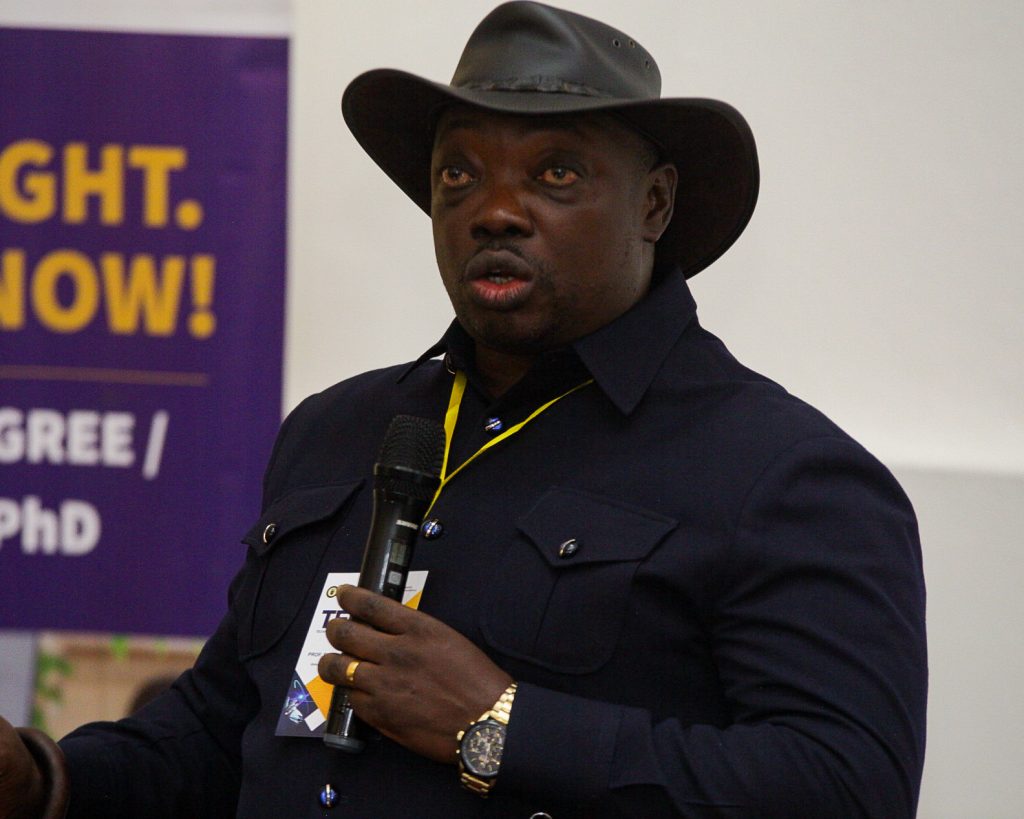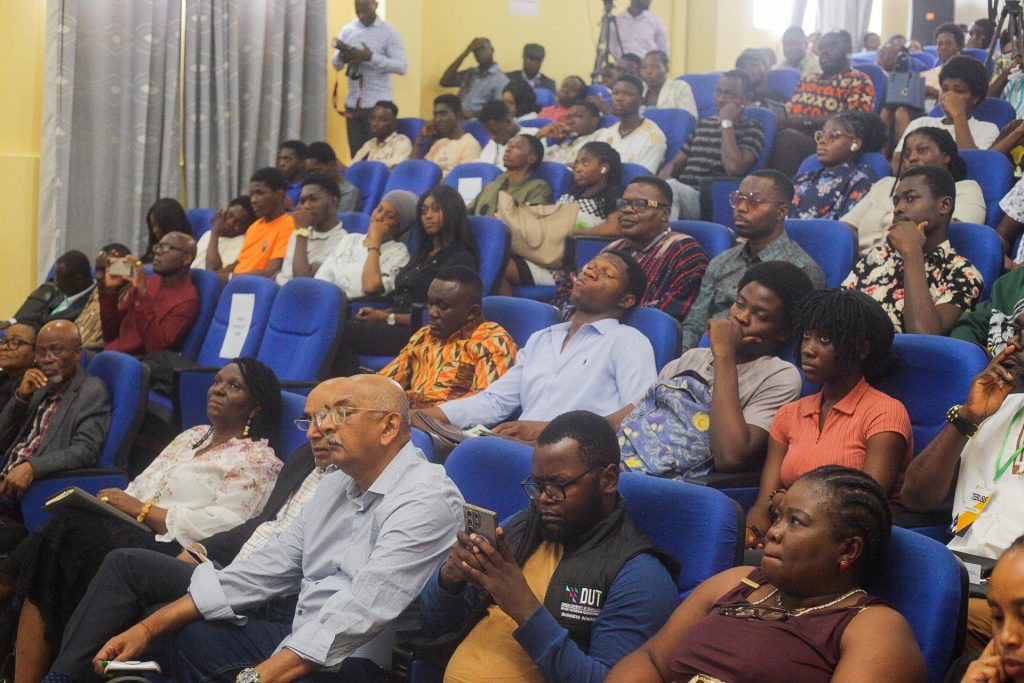By Benjamin A. Commey/Eugenia Otenwaa
Accra, March 27, GNA – Professor Fulufhelo Netswera, Executive Dean, Faculty of Management Sciences, Durban University of Technology, South Africa, has urged African governments to intensify efforts to remove barriers hindering free trade across the continent.
He said this was crucial for achieving the objectives of agreements like the African Continental Free Trade Area (AfCFTA).
Prof Netswera made the call at the Third Edition of the Technology, Business and Society Seminar (TEBUSS), in Accra, on Wednesday.
It was on the theme: “The Africa We Want, The Africa We Must Claim.”
The TEBUSS was organised by the Directorate of Research, Innovation and Consultancy of the Ghana Communication Technology University (GCTU), in Accra.
Prof. Netswera expressed concern over the ongoing barriers to free trade across Africa, despite longstanding commitments to remove them and enable the seamless movement of goods and services.
While commending the signing of agreements like the AfCFTA, he emphasized the importance of backing these initiatives with tangible actions to achieve their intended goals.

“We need to make sure that there is free economic trade, and I think we have started. The passing of the free African trade agreement is a very important milestone. However, it must be followed by action because the piece of paper means very little if there is no action thereafter,” he said.
He added, “Moving goods and shipping goods between South Africa and Tanzania and Mozambique and Ghana should become the easiest thing to do in this continent.”
To ensure free movement of goods, Prof. Netswera emphasized simplifying travel across Africa.
“I do recall a few years ago, coming to the Cameroon here and we could not get a direct flight to come this side. You have to fly to France and come down. Going to Morocco, you have to fly to Paris and come down again.
“As Africans, there are many among us with enough billions to buy aeroplanes to charter us through this continent and I think that has to be done to make sure that the face-to-face interaction among Africans is lubricated and it becomes easier,” he said.
Prof. Netswera called for a radical approach to Africa’s development, stressing unity and self-reliance.
He underscored the need to erase divisions born from colonialism, pointing out that colonial-era boundaries had significantly weakened African nations and obstructed effective continental collaboration.
“Africa must unite,” he said, adding, “We cannot continue to be divided by artificial borders that were drawn in Berlin in 1884.
“Where Africans lead, we lead with distinction,”
Prof. Netswera bemoaned Africa’s struggle with food security despite having 60 per cent of the world’s arable land.
“We need leadership that can transform our potential into reality. Currently, Africa produces what it does not eat, and eats what it does not produce,” he said.

Prof. Netswera proposed strengthening inter-African educational collaborations, developing local manufacturing, and reducing reliance on imports.
“Our continent has the ability and potential to be self-sustaining. We must train the right leadership to unlock this potential,” he said.
Prof. Emmanuel Afoakwa, Vice-Chancellor of GCTU, called for collaboration among countries, academia, and industry.
“In our rapidly changing world, isolation efforts will not suffice,” he said, urging the use of technology to address challenges like hunger, poverty, and healthcare disparities.
“Through innovation and ICT, we can create sustainable job opportunities, empower communities, and stimulate economic growth that is both inclusive and transformative,” Prof. Afoakwa added.
GNA
KAS